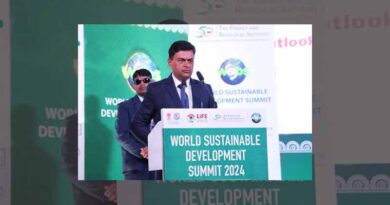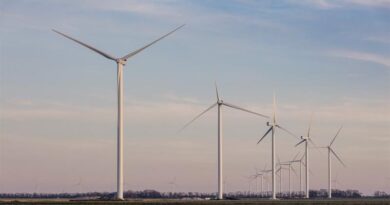International action needed to speed transition: Report
More international collaboration and increased investment is needed for global decarbonisation, although multiple crises have accelerated the energy transition in the past year, the Breakthrough Agenda 2023 report from the IEA and renewable energy agency Irena found today.
15 September 2023, Paris: “The energy transition is moving quicker than many people think, but it needs to move faster still… By delaying further, we are simply increasing the risks”, IEA executive director Fatih Birol said. There has been record global deployment of solar power, electric passenger vehicles (EVs) and heat pumps in the past year, but overall the transition is progressing unevenly across sectors and regions, the report found.
Priorities include international collaboration on standards and definitions for newer technologies such as low-carbon hydrogen and “governments and businesses sending stronger, collective demand signals for sustainable products”, according to the report.
The report was co-authored by UN climate champions for summits Cop 27 and Cop 28. It is the second to track progress made by the Breakthrough Agenda — launched at Cop 26 in 2021 by countries to “fast-track” the transition in key emitting sectors. The coalition now has 48 signatories, covering more than 80pc of global GDP, including all G7 nations and the majority of G20 members.
Signatories pledged to speed up the transition in part by concentrating on “tipping points” whereby low-carbon or zero emissions technologies become the cheapest and most accessible option, and commit to measure and report on progress made. The report assesses progress across five key emitting sectors — power, hydrogen, road transport, steel and agriculture. The group also plans to work towards decarbonisation goals in the cement and buildings industries, which would mean that 60pc of global greenhouse gas emissions was covered by the group’s focus.
Only ‘modest’ progress made
Progress was almost all assessed as “modest” or “minimal” throughout, with no sector deemed to be making strong progress. The road transport and steel sectors advanced the most, with the rate of EVs “growing exponentially” and in line with net zero by 2050 targets if it continues, the report found. For steel, it pointed to “good” development on methodologies and standards for zero-emissions claims.
Renewable electricity made up 83pc of new generating capacity in 2022 — up from 37pc in 2010 — and is now more affordable than fossil fuel-derived power “in a growing number of countries”. But funding, including government grants, and more work on interconnectors and grids is needed to increase deployment, the report found.
In the agriculture sector, “emissions remain on a long-term upward trend”, rising to 7.3bn t/CO2 equivalent in 2022. Agricultural expansion continues to drive deforestation, which must “stop completely” to meet 2030 targets in line with the Paris agreement, the report found.
Also Read: Major decisions related to agriculture under India’s G20 presidency
(For Latest Agriculture News & Updates, follow Krishak Jagat on Google News)















